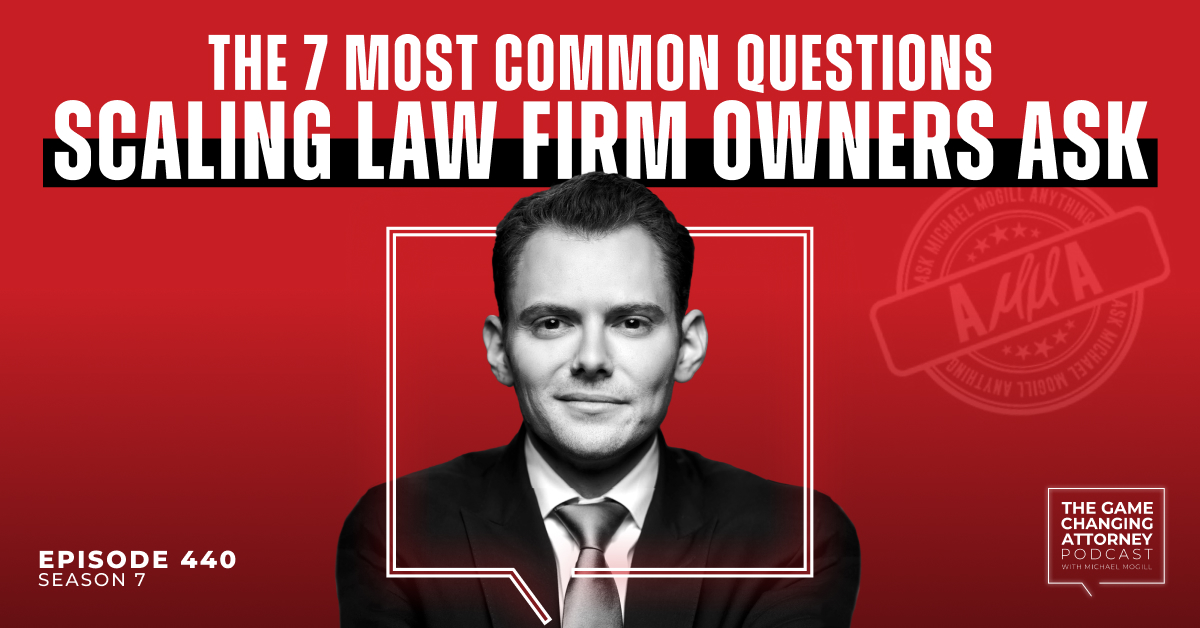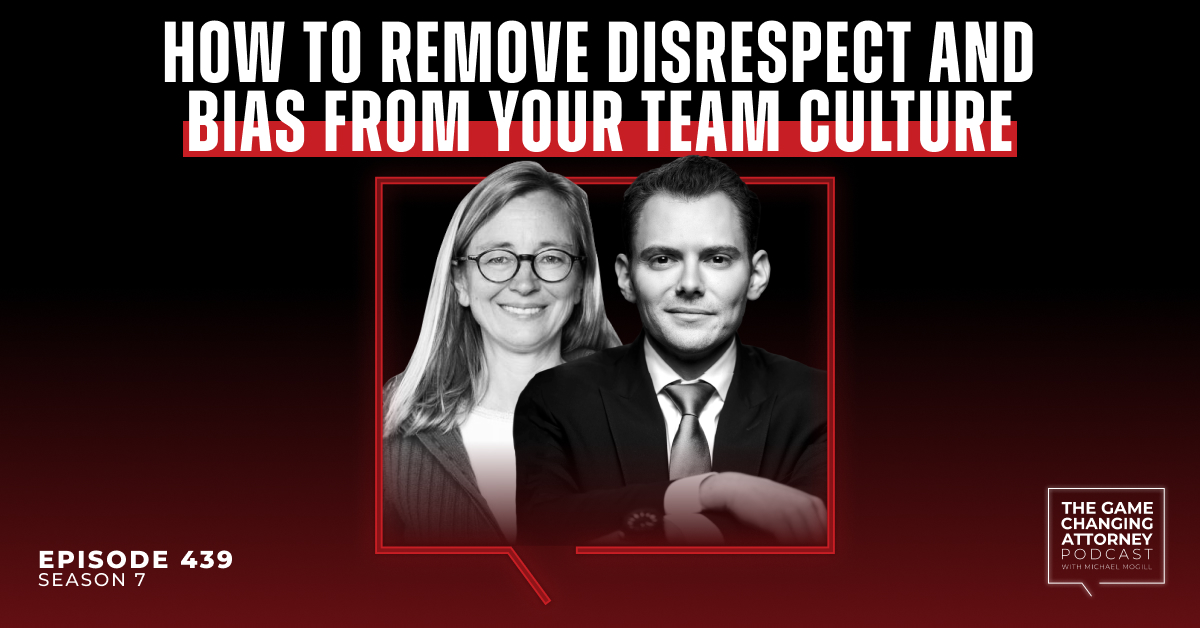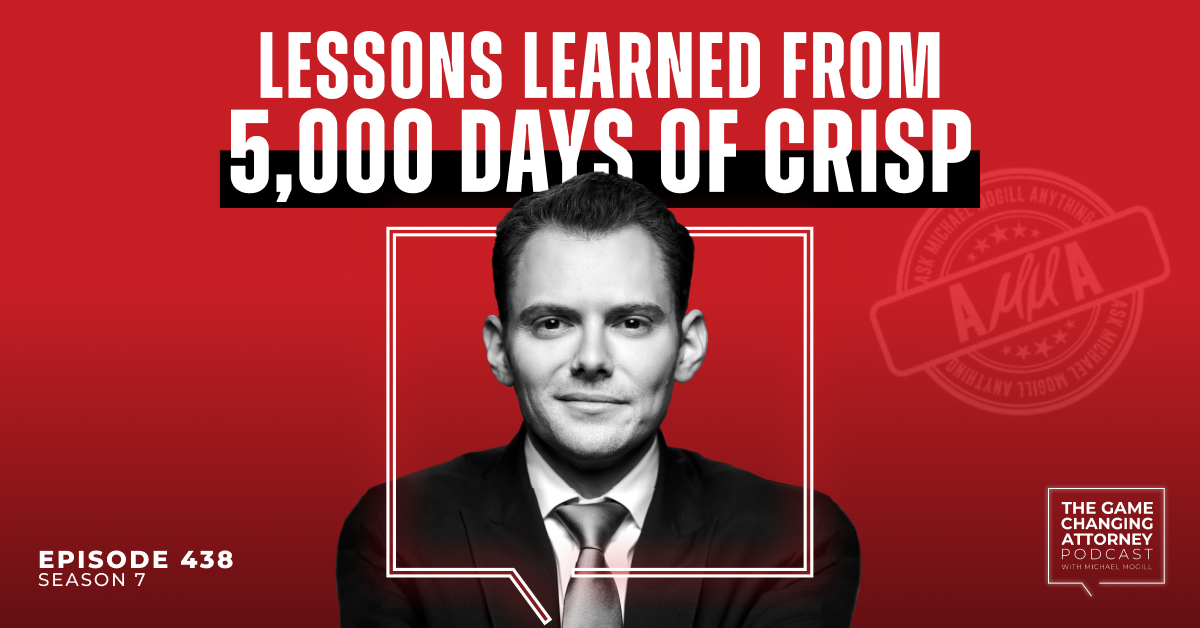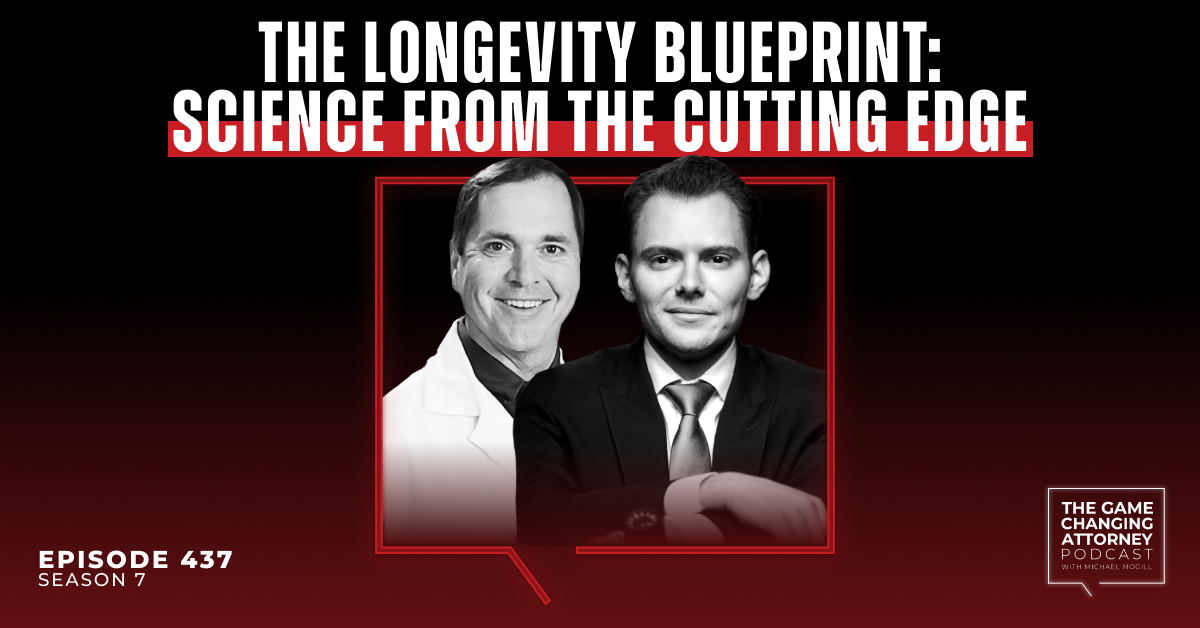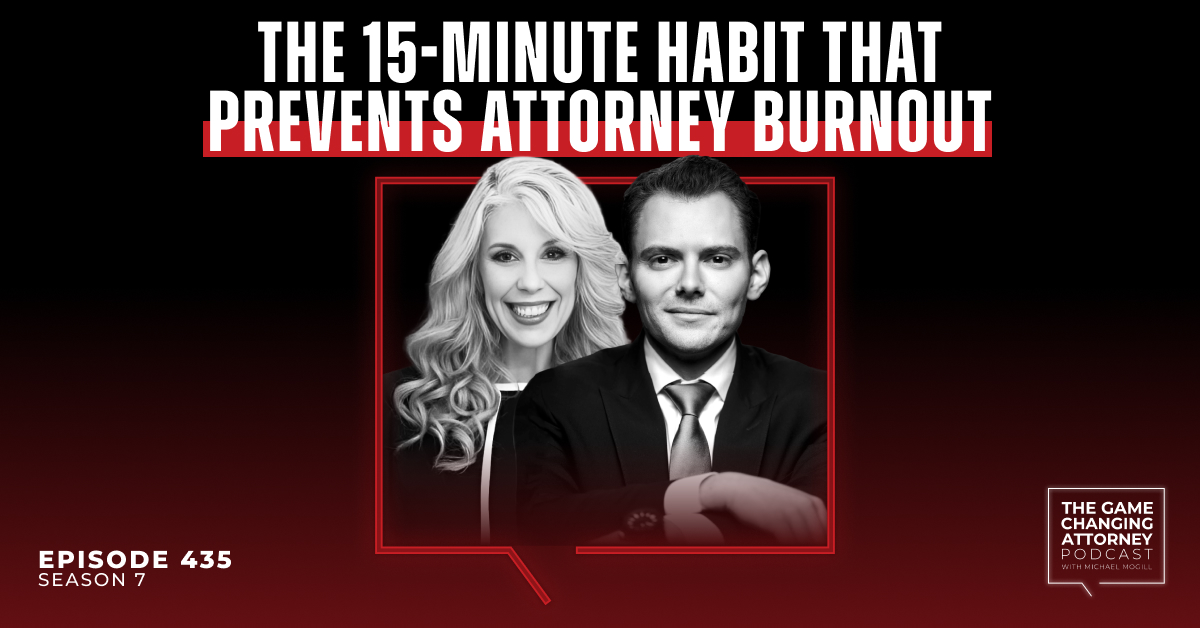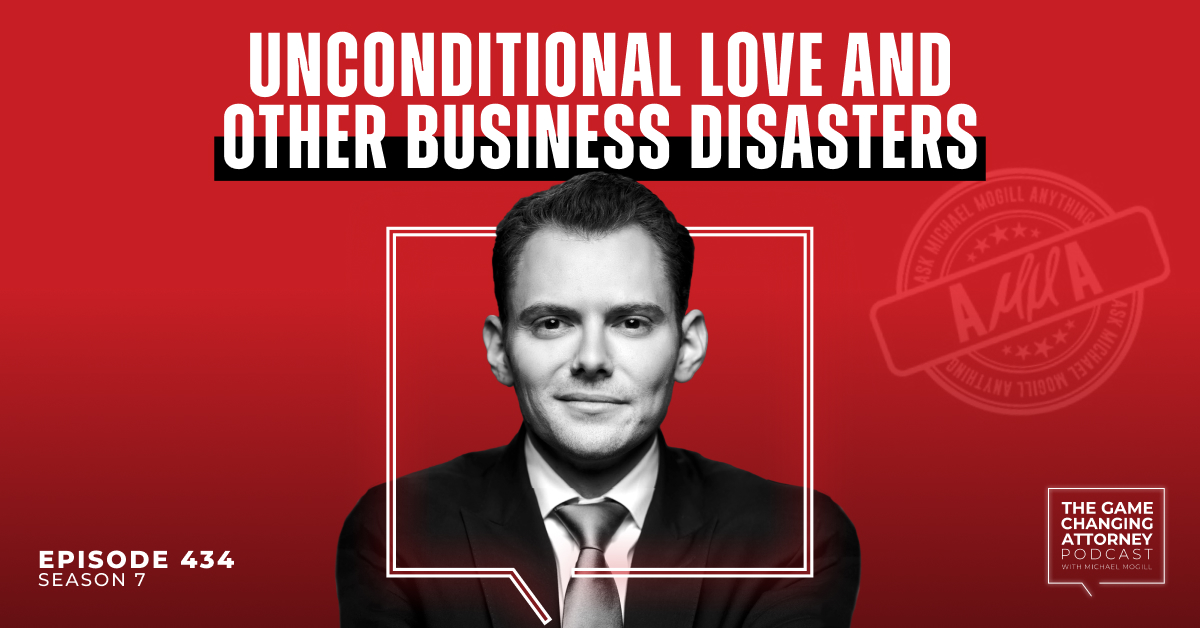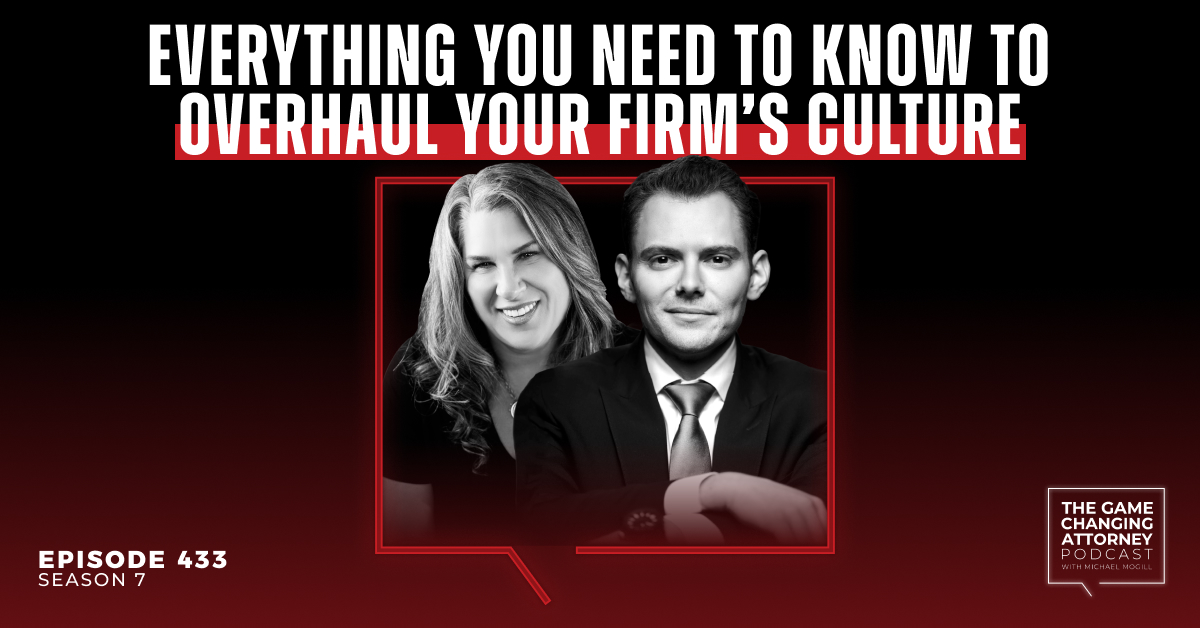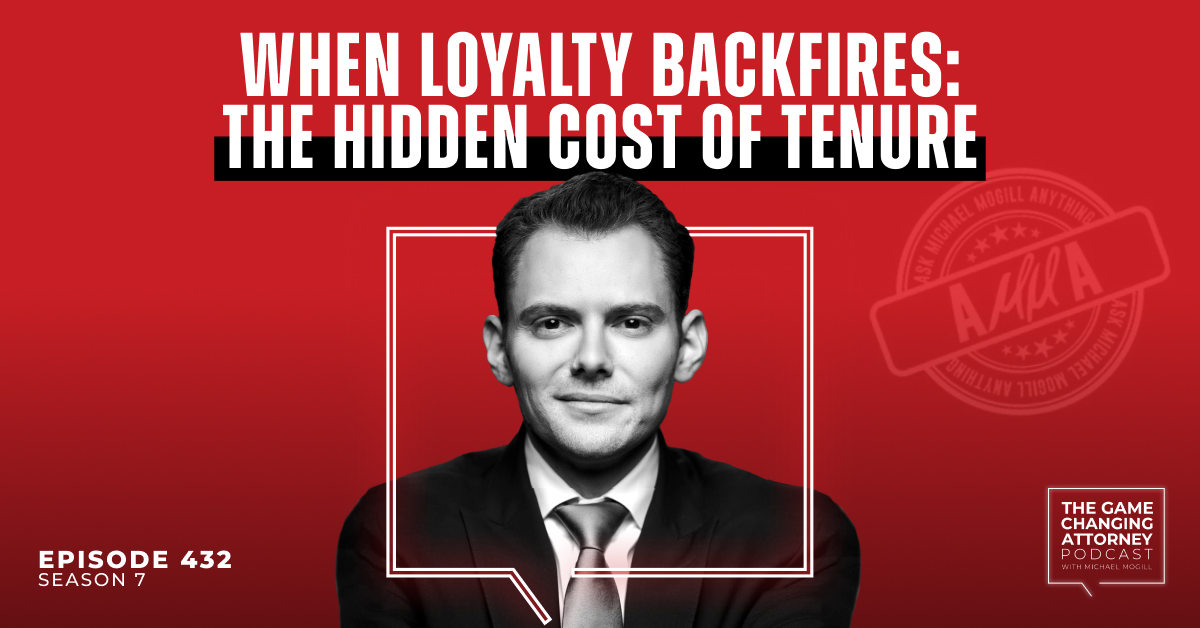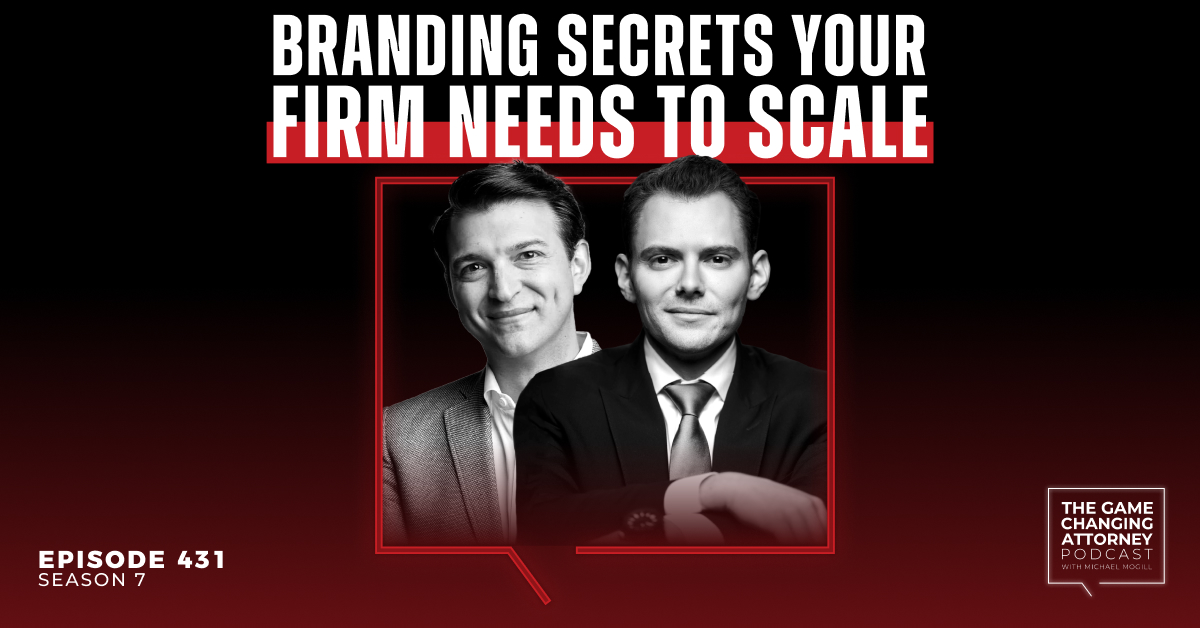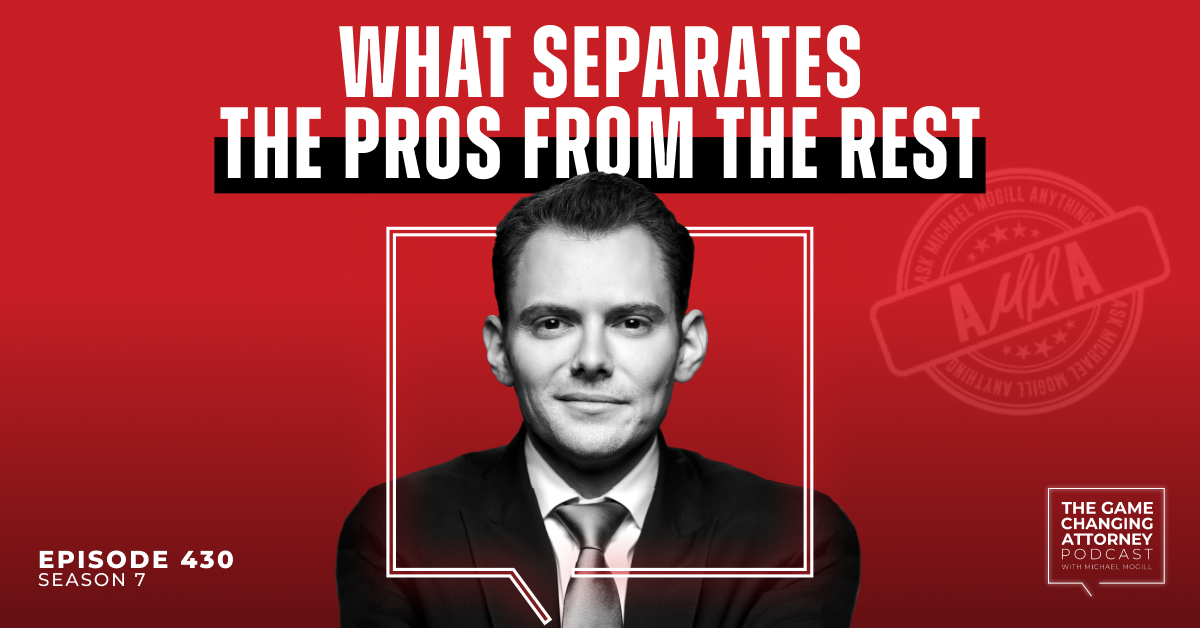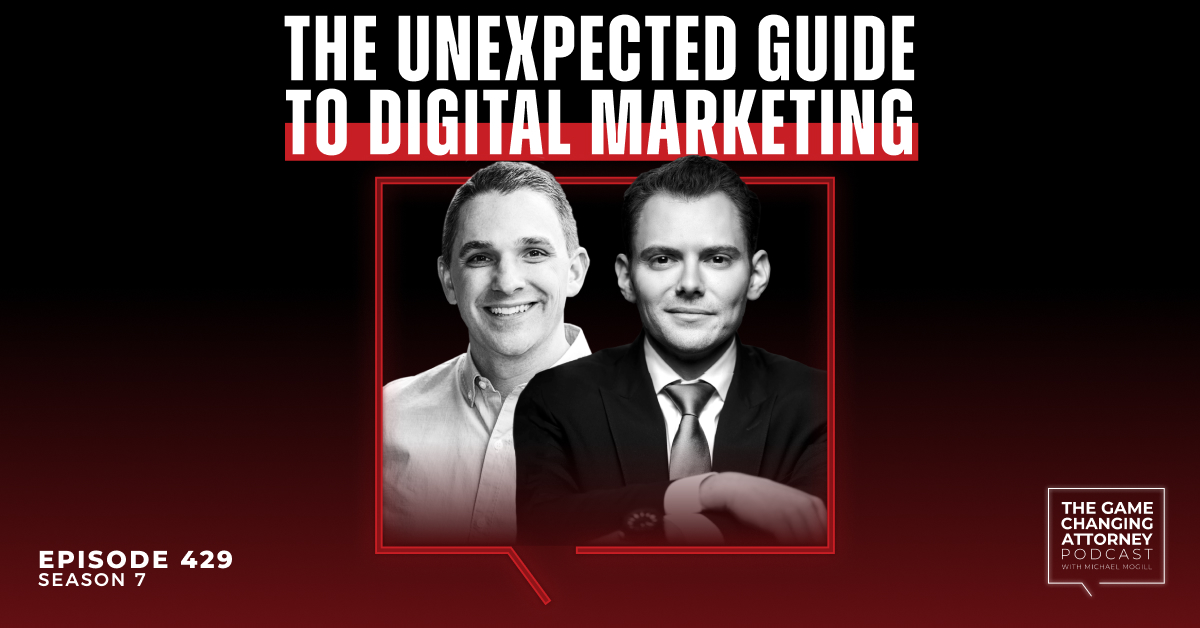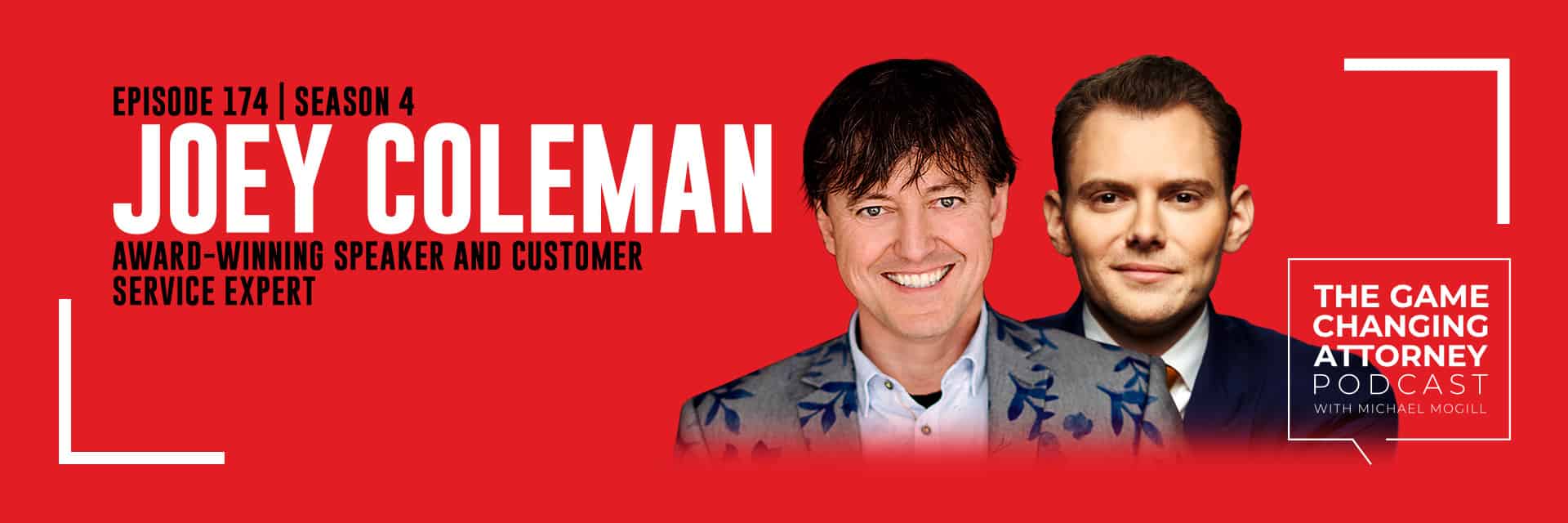
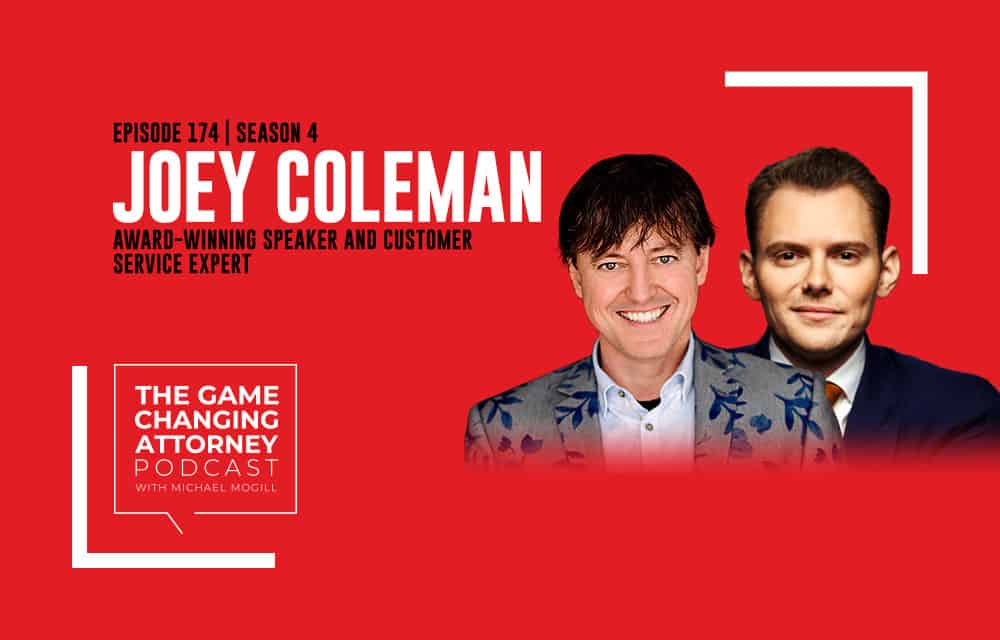
Episode 174 — Joey Coleman — Never Lose a Client Again: Creating Memorable Experiences to Gain an Advocate for Life
Joey Coleman is an expert when it comes to helping organizations retain their best clients and turn them into raving fans for life — but he wasn’t born this way. In fact, Joey learned his communication skills in the courtroom as a trial attorney.
On this episode of The Game Changing Attorney Podcast, Joey and Michael sit down to discuss:
- Why attorneys are built for delivering a world-class client experience
- How to stop clients from feeling buyer’s remorse
- The importance of attracting, attaining, and retaining clients for life
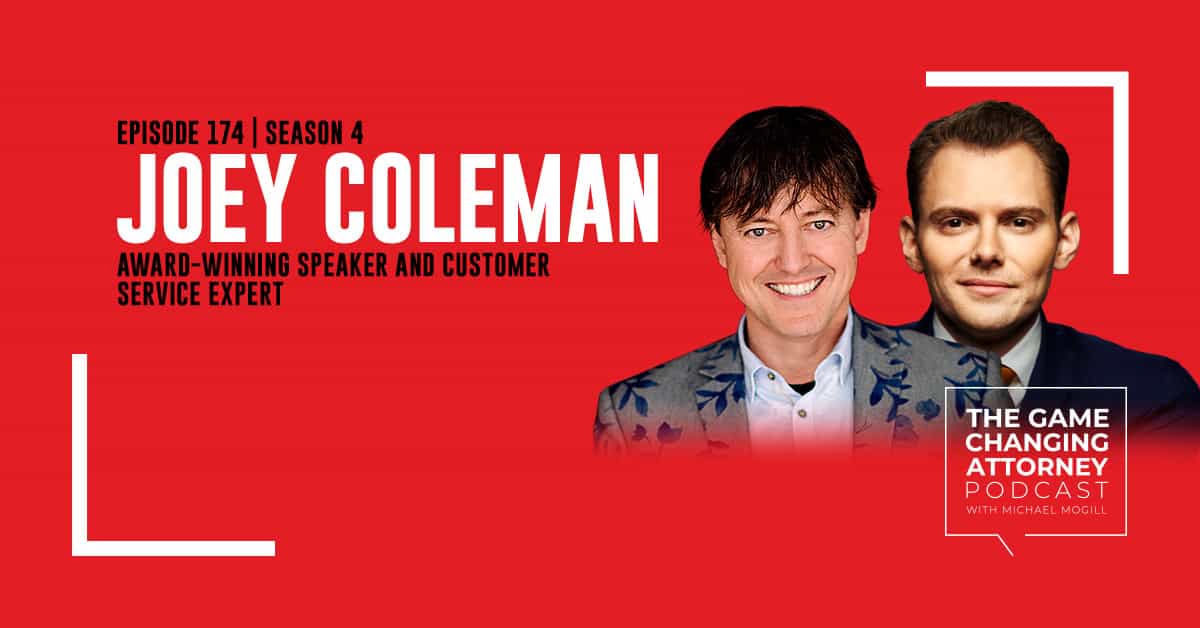
Listen & Subscribe
Show Notes:
A man of many talents. “I grew up the son of a criminal defense lawyer, so my first time at a counsel’s table I was in sixth grade when I was a federal court courier, and an antitrust attorney in a case that my dad was trying. I grew up basically in that environment. I went straight from college to law school. After law school, I was a criminal defense lawyer for a while, was a business consultant, went back to being a criminal defense lawyer, and then worked selling promotional products. I was a teacher at the postgraduate level. I started and ran an ad agency. I had my stint, as you mentioned, with the Secret Service, with the White House, and with the CIA. Some amazing experiences, but the thread that ties all of these together — some people look at that and they’re like, ‘Jesus, this guy can’t hold the job,’ but there’s actually a method to the madness — and that is in each of those positions, the way that you succeeded was by having a keen understanding of the human condition.”
A common thread. “In each of these positions, what I learned was even though they’re completely different industries, completely different worlds with completely different desired outcomes, there’s one common thread. The common thread is humans, and really what it allowed me to do is take the learnings from all of those and combine them into this discussion of customer experience and employee experience. You know, what are your customers doing, what are your employees doing, what would you like them to be doing, and how can we use different tools and techniques to increase the likelihood that our desired outcome actually happens?”
Why you must retain clients. “Number one, we need to recoup our marketing costs. If we don’t keep a client long enough to recoup our marketing costs, we’re in the hole for that client. Number two, the longer we keep a client, the more profitable that client becomes. Why? Well, because we recouped all of the onboarding costs in addition to the marketing costs, and as our team, whether that’s our associates or partners or paralegals or support staff, as they work more and more with a client, they become more efficient in dealing with that client’s matters. So as a result, each additional hour they bill is a more profitable hour than the previous ones billed because we’re already up to speed on the project, even though in most firms there isn’t a sliding scale that says, ‘Hey, the longer you’ve worked with us, the less you pay.’ That’s not usually the way it works. So the moral of the story is, if we can stretch a client for one more engagement or one more referral, the incremental impact on the bottom line of our business is incredible.”
Make someone responsible for the client experience. “There are people in your firm who understand this client experience better than you do, who would love to be involved in a project or initiative to enhance the client experience. They’re just waiting for the invitation. So don’t worry if you roll this out, ‘Oh, how are we going to get anybody involved?’ If you genuinely make it available and you put the resources in the time behind it, you will have employees come out of the woodwork. I think it’ll surprise you.”
The buyer’s journey isn’t linear. “I believe that the journey has eight distinct phases, and those phases walk the client through the different emotional states they will have as they start to get to know you, as they work with you, as they work towards the resolution of their case, and then ideally on the back end, what are you doing to cultivate these adopters and advocates — the people who are loyal and committed to you and the people who are singing your praises far and wide? If we do that right, they then rinse and repeat. They come back to bring you a new case or a new project or a new initiative, and you run them through the cycle again.”
Righting wrongs is worth it. “I think most of the research would show that when in doubt, the experience trumps the result. And we only need to look at our own personal lives to see how that works, right? When we are working with a brand or a business and something goes wrong and they fix it and make it better, we actually like them more than if nothing would have gone wrong from the beginning. So when people get nervous about something going wrong, here’s the thing, friends: If something goes wrong and you correct it, you’re actually in better standing than if something hadn’t gone wrong in the first place.”
Focus on the employee experience. “Your employees have not had the same life experience as you. They have probably never been picked up in an airport by somebody with a sign with their name on it. They have probably never been sitting in first class sipping a mimosa while the rest of the plane boarded. They have probably never stayed at a five star hotel or eaten at a Michelin star restaurant or had a private tour of an art gallery after hours or had a personal shopping experience. The things that many of you listening have experienced in your life are completely foreign to your staff. So one of the things you can do as an employer is to start to look at the experience you’re giving to your employees and see if it is of the caliber of the experience you’re hoping they will deliver to your clients — because if it’s not, as the old saying goes, ‘You ain’t going to get there from here.’ It’s time to focus on the employee experience.”
What does being a game changer mean to you? “I think being a game changer is refusing to accept the standard for success that is today. I don’t think it’s enough to say, ‘Yeah, but I’m better than other lawyers.’ Stop that! That’s not a game changer. That means you have the ante up chips to sit down at the table and get dealt a hand. Okay? I would love it if on the list of Tesla, Amazon, Google, Apple, Facebook, Netflix — the brands that were creating experiences that everybody’s talking about — your law firm was in that list. Now I know that seems like a crazy stretch, but I absolutely believe it’s attainable. The bar for client experience in the legal profession is lying on the ground. Literally all you have to do is not trip over it. You have to lift your foot instead of dragging your foot to step over what the standard is for client experience, especially the US legal system. I think there is a huge possibility.”
EPISODE RESOURCES
Frederick Reichhelt
American Bar Association
Never Lose a Customer Again by Joey Coleman
Ritz-Carlton
Connect with Michael
- Text directly at 404-531-7691
